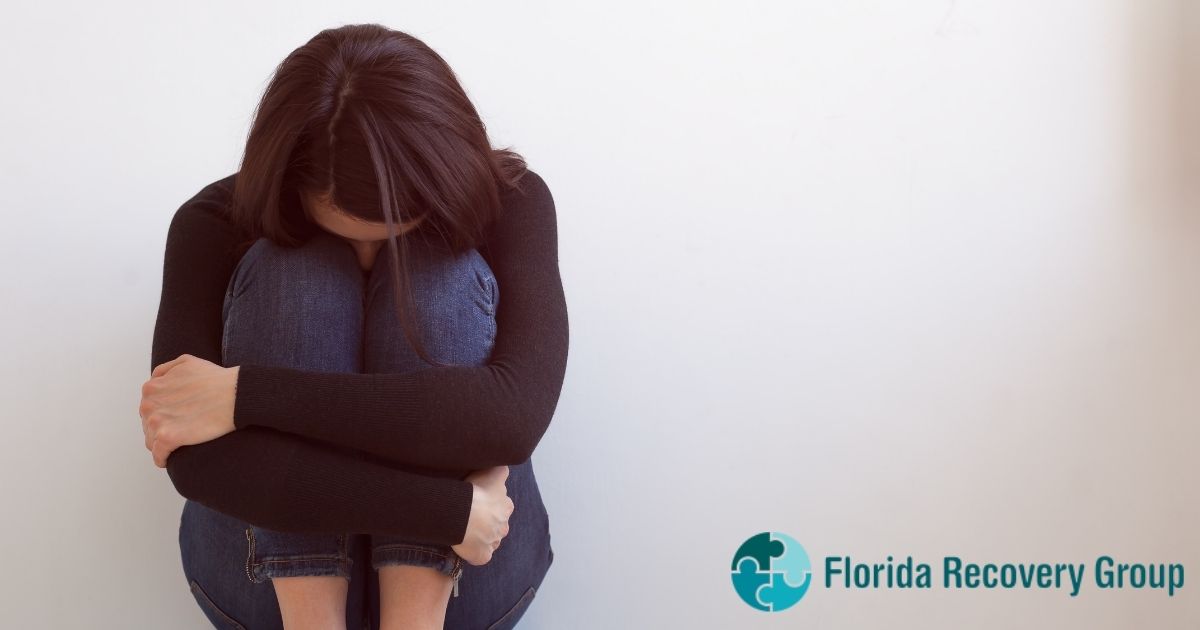
11 Nov How to Cope With The Shame and Guilt of Relapse
Imagine it: You’ve successfully completed an addiction treatment program. You have new skills, new insight, and a new understanding of what you need to do to achieve your goal of lifelong sobriety. Spirits high, you set out, confident in your ability to cope with whatever life gives you without returning to drug or alcohol abuse.
Most people leave rehab filled with a mix of emotions. You may feel excited, hesitant, confident, or anxious–or some combination of jumbled-up emotions. It might be tempting to ignore the possibility of a relapse and focus on what you are doing right. But the truth is, many people–in fact, most people–will have at least one relapse in the course of their addiction recovery journey.
When someone puts in the work and is committed to recovery, a relapse can be very discouraging. Many people experience strong feelings of shame and guilt after a relapse. For some, it can lead to more destructive behavior or giving up on sobriety altogether.
Understanding why a relapse can occur and how common it is can help you deal with these feelings if it happens to you. Staying focused on your recovery means dealing with your shame and guilt after a relapse without giving up. It is important to move past these feelings and let go of what happened so that you can continue to move forward–instead of sliding back into your addiction.
Deal With a Relapse Without Giving Up
For some people, the shame and guilt they feel after a relapse can become overwhelming. When these feelings run rampant, they tend to push away any positivity and progress the person might have made. It is important to learn how to deal with a relapse in a healthy way without letting guilt and shame derail your progress in recovery.
First, think about what happened. Was it a relapse, or simply a “slip”? A slip tends to be an isolated event that happens in the span of a day or less. After a slip, people usually realize what has happened and are able to re-commit to their recovery.
A relapse is a longer period of substance use and involves a lack of recognition or concern that you have gotten off track. A relapse can feel like a setback. Some people wonder if it shows that they are not ready, haven’t learned enough in treatment, or that they are not cut out for recovery.
None of these are true. The first thing you should do after a relapse is take responsibility for it without beating yourself up. You should acknowledge that you relapsed and start to examine your thoughts, feelings, and behaviors leading up to it. It is important to focus on a relapse as a bump in the road, not the end of your journey.
How to Cope with Relapse
It can be hard to stay focused on recovery when feelings like shame and guilt are creeping in. If you or a loved one are wondering exactly how to cope with a relapse without losing sight of your long-term goals, remember these tips:
- Don’t panic: A relapse is not a failure, and you can continue to be active in your recovery.
- Re-commit: Immediately after a relapse, re-commit to your goal of lifelong sobriety. Attend a meeting, talk to a counselor, or find some other way to meaningfully engage in your recovery as soon as possible.
- Evaluate: What happened before the relapse? How were you feeling? Who were you with? Look for new or ongoing triggers you didn’t see before and use this information to help you avoid another relapse in the future.
- Get more support: Sometimes, a relapse can be a sign that you did not have enough support or that you need more education or coping skills. If you have stopped attending therapy or meetings, start again.
A relapse can teach you a lot about what life in active recovery is really like and what other support you need. By treating your relapse as an informative event, you may be able to move past it without getting bogged down by shame and guilt.
Is it Normal to Feel Shame and Guilt After a Relapse?
In a word, yes. People tend to have feelings of shame and guilt when they feel like they have let themselves or others down. However, it is important to remember a few things about recovery to avoid getting lost in shame or guilt:
- Recovery is not always a smooth journey because humans are not perfect.
- Most people in recovery will have at least one relapse
- A relapse is not a sign that you are weak or a failure
- Some issues and triggers do not show up until after treatment ends–and these can lead to a relapse
- Finding the right balance of treatment, support, and engagement takes time and practice
While most people feel some kind of guilt, frustration, shame, or disappointment after a relapse, it is not helpful to let yourself dwell on those feelings. Learn what you can from it, remind yourself why you want to be sober for life, and surround yourself with the support you need to move forward.
Learn More About How to Deal With Relapse at Florida Recovery Group
At Florida Recovery Group, we believe that anyone can recover from addiction if they have the right support and treatment. We offer a variety of adaptable programs that can be adapted to meet your unique needs.
If you or someone you love requires addiction treatment, please call now to speak with one of our admissions counselors.





